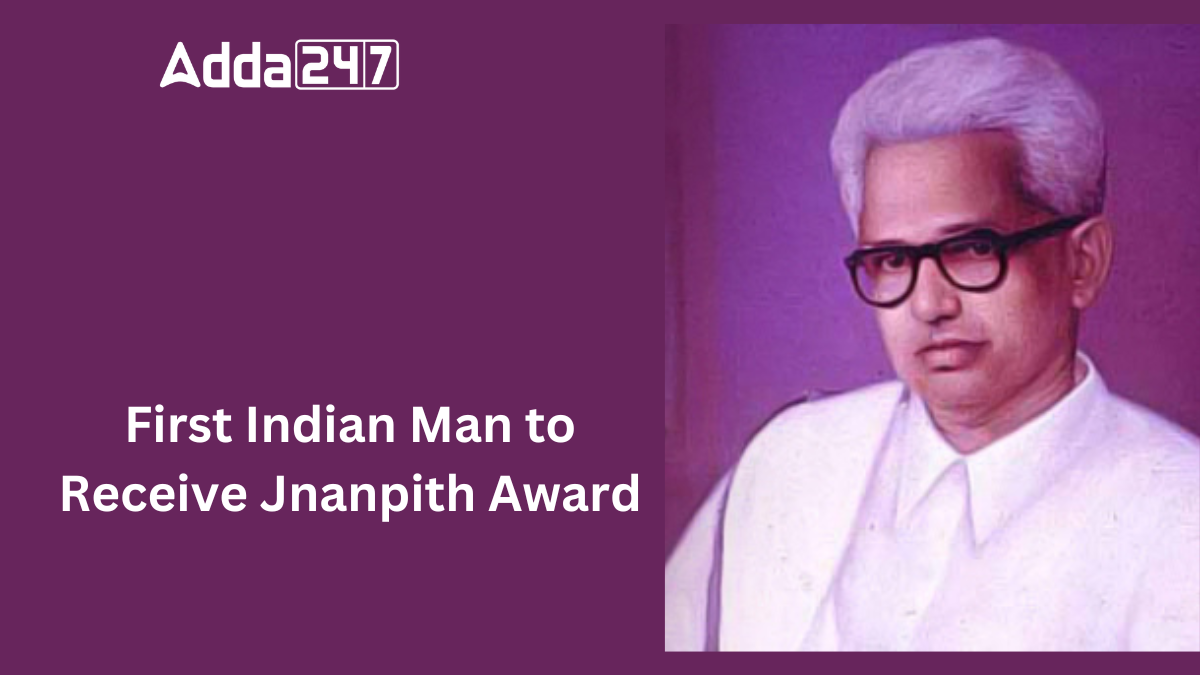First Indian Man to Receive the Jnanpith Award
The first Indian male to receive the Jnanpith Award was G. Sankara Kurup in 1965. Known for his contributions to Malayalam literature, Kurup was honored for his poetry anthology Odakkuzhal (The Bamboo Flute). This prestigious award is India’s highest literary honor, recognizing excellence in literature.
Early Life and Education of G. Sankara Kurup
Sankara Kurup, born on June 3, 1901, in Nayathode, Ernakulam, Kerala, was an Indian poet, essayist, and literary critic. He began his education in local schools at Nayathode and Perumbavoor and advanced to Muvattupuzha for further studies. By 16, he started working as a headmaster while continuing his education. His career in education continued with positions at various schools and colleges, including Maharaja’s College, Ernakulam.
Career and Contributions of G. Sankara Kurup
Kurup’s literary journey began with his poem “Salutation to Nature” in 1918, and his first anthology, “Sahitya Kauthukam,” was published in 1923. He made a significant impact with his poetry and was known for his contributions to Malayalam literature. Besides his writing, Kurup worked as a producer for All India Radio and held important positions such as the president of Kerala Sahitya Akademi and Kerala Sasthra Sahithya Parishad. He was also a nominated member of the Rajya Sabha.
G. Sankara Kurup – Personal Life
In 1931, Kurup married Subhadra Amma. The couple had two children, Ravindranath and Radha. Radha later married M. Achuthan, a noted academic and literary critic. Kurup passed away on February 2, 1979, following complications from surgery.
Major Literacy Work of G. Sankara Kurup
G. Sankara Kurup’s literary work includes over 40 published works, encompassing poetry, short stories, memoirs, plays, and essays. His notable works include “Odakkuzhal,” “Poojapushpam,” “Nimisham,” and “Navathidhi.” He also translated significant works like Omar Khayyam’s “Rubáiyát” and Kalidasa’s “Meghadūta” into Malayalam.
Some important literacy work of G. Sankara Kurup is as follows:
- Odakkuzhal
- Ormmayude
- Poojapushpam
- Nimisham
- Navathidhi
- Ithalukal
- Pathikante Paattu
- Muthukal
- Anthardaham
- Chenkathirukal
- Vishwadarshanam
- Madhuram Soumyam Deeptham
- Sandhya Ragam
Awards and Honors Presented to G. Sankara Kurup
- Jnanpith Award (1965) – For his anthology “Odakkuzhal.”
- Padma Bhushan (1967) – India’s third-highest civilian honor.
- Soviet Land Nehru Award (1967)
- Kerala Sahitya Akademi Award (1961) – For “Viswadarshanam.”
- Sahitya Akademi Award (1963) – For his poetry
An Overview of Jnanpith Award
The Jnanpith Award is India’s oldest and highest literary award. It is given every year by the Bharatiya Jnanpith to a writer who has made an “outstanding contribution to literature.” Started in 1961, the award is given only to Indian writers who write in languages listed in the Eighth Schedule of the Indian Constitution or in English. The award is not given posthumously.




 Which Island is known as the Island of P...
Which Island is known as the Island of P...
 Which Country is the Largest Green Chill...
Which Country is the Largest Green Chill...
 Which River is known as the Chocolate Ri...
Which River is known as the Chocolate Ri...








